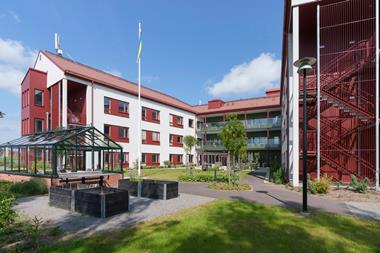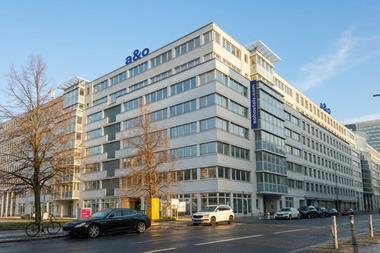EUROPE - Prime office in Germany's main cities, including capital Berlin, are overvalued, according to a new survey by ratings agency Feri.
According to research examining the rental yields of 25 European cities, Dublin ranks as "strongly undervalued", while central London - incorporating Docklands and West End properties - has rebounded from being undervalued a few years ago to now being regarded as one of the 17 markets trading at fair value.
Speaking to IPE, Feri EuroRating's head of real estate research Manfred Binsfeld said the reason German cities - including Hamburg, Munich, Frankfurt and Berlin - were regarded as "slightly overvalued" came as a result of the country's safe haven status.
He said prices had already increased on the back of this perception, with rent "very high" compared with historical norms and only an overpricing of the market likely to change the situation.
"Germany can expect moderate rental growth, but prices have already increased over the past two years," he said.
"And for the time being, they are still realising returns above the inflation rate - and specifically more than they would with investments in German bunds - by investing in core assets in prime locations, even if the rates of return in the core segment have declined in the meantime."
The agency's report, which ranks Berlin 22nd out of 25 cities, notes that unlike many other European capitals, the German capital has proven capable of providing stable office rental income, with rents expected to rise through 2015.
However, despite the capital being Germany's largest office market and being underdeveloped for so long as a result of the Berlin Wall, Feri predicted interest in investment would not recover until at least next year, having declined in 2009.
Binsfeld was more positive about Ireland and specifically Dublin's outlook, noting that while the country was no longer enjoying "exorbitantly high" real GDP growth, it was still predicting 3% over the medium term.
"As a result, we view downside risk as low and are expecting moderate rental increases over the next few years ," he said.
"Combined with what remain historically high rents, we expect the compression to occur in the medium term, drifting towards a fair value rental return."
He explained that, with a prime rental yield of 7.5% in Dublin and an expected yield compression with little downside risk, investors could soon see an increase in total return.
"If the rent rises and yields fall slightly, then you could quickly see total return increase towards 10%," he said. "This is the prospect we'd like to highlight, while acknowledging that the current situation is marred by uncertainty."
He added: "Otherwise, we have witnessed significant yield compressions in European cities over the past two years and expect rental yields to stabilise - unless the sovereign debt or euro-zone crisis escalates once more."
A significant number of the cities surveyed were viewed as fair value, with only Budapest seen as "slightly undervalued".
Cities such as Brussels and Copenhagen were viewed as fairly valued and graded 'C' alongside other capitals, such as the outer London office market, Paris, Amsterdam and Madrid, while Stockholm and Milan joined four German cities in receiving a 'D' - viewed as slightly too expensive.












